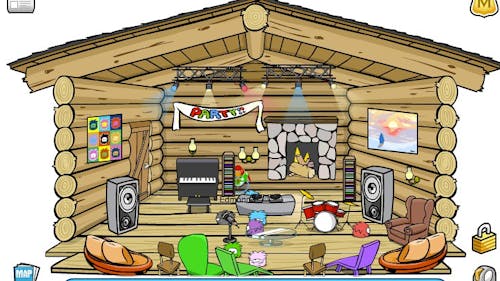Former popular online games that invoke serious nostalgia

Today, mobile gaming is one of the biggest and accessible markets for the gaming industry with the wide usage of phone applications. But before smartphones were introduced and our parents finally allowed us to get one of them, online games were very popular among Generation Z children, who to this day can look back on the hours and hours they’ve spent playing on these web sites.
Runescape
The oldest in the list, Runescape is one of the massively multiplayer online role-playing games (MMORPGs) that became immensely popular shortly after the new millennium.
It shares the genre’s immersive experience of the player being inside the game, with the avatar’s progression of gaining experience points from completing tasks, improving skills by repetitively engaging in combat and retrieving a variety of materials to build items. Quests are also a prominent feature in the game, much like in many MMORPGs. In order to complete these tasks for rewards, the player fights in either melee, magic or ranged combat.
Runescape has maintained its popularity throughout the years, going through multiple reiterations to support millions of users with better performance and content.
Club Penguin
The virtual world with the iconic penguin avatar grew to be so popular that it was eventually acquired by Disney for $700 million in 2007, according to VentureBeat.
Players could pass a lot of time by just playing the various mini-games. Nearly every area had its own: racing down the snow-tubing slope, ice fishing or frantically making pizzas at the pizza parlor. To access all of the game’s features, players had to buy a membership subscription. This allowed you to play without any limitations on features such as clothing or the number of adopted Puffles.
Unfortunately, the site closed down in 2017, after which the internet reacted by reviving all of their nostalgic memories.
Webkinz
Whereas Club Penguin was free to play (unless you begged your parents to buy a membership for that extra style), playing Webkinz required you to buy one of its stuffed animal plushies to redeem the “secret code” to “adopt” a pet online. Despite the costs, it didn’t stop children from playing the popular game: Only a year after the game was launched, there were a million accounts, according to Wired.
There are some similar gameplay aspects to Club Penguin. For example, you could decorate your own house, play mini-games to gain its online currency (KinzCash) and interact with friends. But Webkinz was more involved with the caring of the avatar and featured a health bar that is recurrent in games, encouraging the player to wash, feed and exercise the pet.
Poptropica
Created in 2007 by Pearson Education and Jeff Kinney, the author of the well-known series “Diary of a Wimpy Kid,” Poptropica is a role-playing game that reached popularity a little later in the decade than other games on this list.
Players can go to individual “islands,” which have different themes that go along with their unique characters and storyline. The player has to go through a series of quests in order to complete the island. At the end of completing the objective, the player receives a medallion that comes with credits to unlock new islands.
The game is directed toward a younger audience, but the puzzle-solving aspect and the varying levels of difficulty appeal to people of all ages. Like many of these games, the avatar is iconic in its design even though its appearance is customizable by the player.
With the exception of Club Penguin, these games are still accessible through its webpages. It will likely not be the same as you would remember it, as years have gone by and the games still continue to update more content and features. But whether the basic core gameplay elements remain, the nostalgia forever stays out of those hours nonchalantly spent at a carefree age, where such expenditure was possible.



